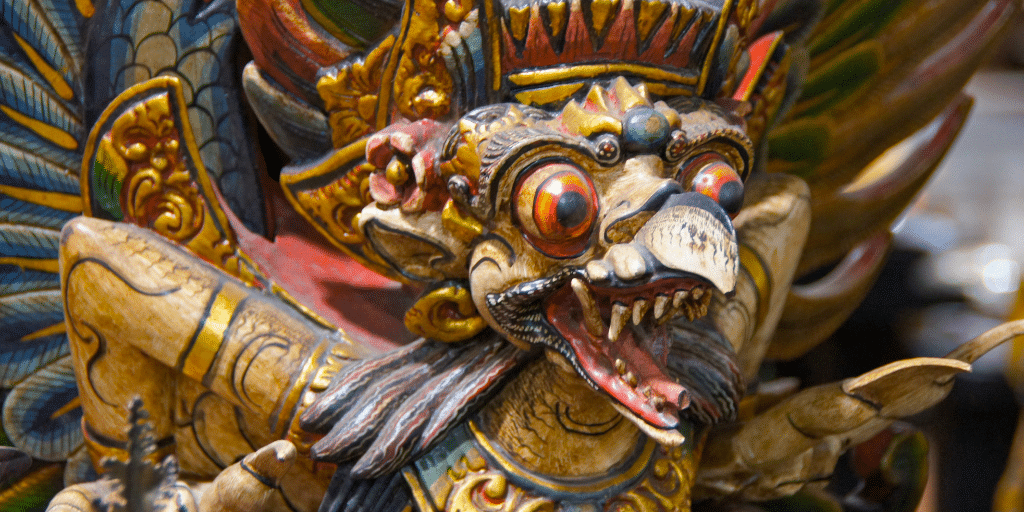The First Commandment: No Other Gods

“And God spoke all these words: ‘I am the Lord your God, who brought you out of Egypt, out of the land of slavery. You shall have no other gods before me.’”
Exodus 20:1-3; Deuteronomy 5:6-7
The first thing God does as He begins to give His Law is to remind Moses and the Israelites of exactly who He is, and why they can trust Him. He is, after all, the God who chose them and who has brought them safely out of slavery in Egypt. He has already demonstrated both His power and His compassion. He has already demonstrated that He is able and willing to provide for them.
Now, before they go into the land God has promised them, He wants to insulate them against the false gods they will encounter in that land. He wants them to keep in mind that He is not just the “greatest” god; that He is not just “their” god; but that He is in fact the only God: “Hear, O Israel: The Lord our God, the Lord is one” (Deuteronomy 6:4).
All the other gods that they will encounter are no gods at all. Isaiah beautifully demonstrates that when he writes about the man who takes a piece of wood; part of it he burns to prepare his meal, another part he burns to keep himself warm. “From the rest he makes a god, his idol; he bows down to it and worships it. He prays to it and says, ‘Save me! You are my god!’” (Isaiah 44:17). How foolish.
But it’s not just idols we are warned against. We are warned, first of all, about thinking of our God as something other than what He truly is. We may think that He is unaware or unconcerned about what we face on a daily basis. We may think of Him as a loving God who overlooks our faults. We may think of Him as a vindictive God who is only interested in punishing us. We may think of Him as lacking the power to act on our behalf. Taken by itself, each of those gives us a faulty picture of our God. It is only when we see Him as the sum of all His attributes, working together in perfect harmony, that we begin to see Him for who He is. A.W. Tozer famously said, “What comes into our minds when we think about God is the most important thing about us.”[1] And Dan DeHaan cautions, “The Bible calls idolatry any form of thinking about God wrongfully.”[2] The Westminster Confession warns us against “ignorance, forgetfulness, misapprehensions, false opinions, unworthy and wicked thoughts of him.”
Lest you think at this point you are keeping this command simply because you have not set up a shrine to some god such as Baal or Molech in your home, think for a moment what makes up an idol. Albert Mohler suggests, “Who is it in the end that we truly trust and truly adore? For in answering that question, we find who our God is.”[3]
We read in Job 31:24-28, “If I have put my trust in gold or said to pure gold, ‘You are my security,’ if I have rejoiced over my great wealth, the fortune my hands had gained, if I have regarded the sun in its radiance or the moon moving in splendor, so that my heart was secretly enticed and my hand offered them a kiss of homage, then these also would be sins to be judged, for I would have been unfaithful to God on high.”
As D.L. Moody puts it, “Whatever you make most of is your god. Whatever you love more than God is your idol.”[4] If I may quit preaching and go to meddling for a moment, consider what you have put before God in your life. Is it your job? Sports? Some type of entertainment? Your family or friends? Or have you settled on some idea of God that is less than, or contrary to, His true nature?
Luther’s Larger Catechism asks:
“What is a God? Answer: A God is that to which we look for all good and in which we find refuge in every time of need. To have a God is nothing else than to trust and believe Him with our whole heart. As I have often said, the trust and faith of the heart alone makes both god and idol. If your faith and trust are right, then your God is the true God. On the other hand, if your trust is false and wrong, then you have not the true God.”[5]
Jesus reminds us that we cannot serve two gods: “No one can serve two masters. Either you will hate the one and love the other, or you will be devoted to the one and despise the other. You cannot serve both God and money [or whatever else you have set up as God in your life]” (Matthew 6:24).
Who, or what, is your God today?
Go Deeper
- Relying on The Constant Companionship of The Holy Spirit – Package Offer
- Where is God When Life Hurts? – Package Offer
- Does God Exist? Arguments for the Existence of God
[1] A. W. Tozer, The Knowledge of the Holy (Fig. Kindle Edition), p. 1.
[2] Dan DeHaan, The God You Can Know (Moody Publishers. Kindle Edition), p. 14.
[3] R. Albert Mohler, Jr., Words From the Fire: Hearing the Voice of God in the 10 Commandments (Moody Publishers, 2009), p. 43.
[4] Dwight L. Moody, The Ten Commandments: Reasonable Rules for Life (Aneko Press, Kindle Edition), p. 26.
[5] Quoted in Mohler, p. 42.








